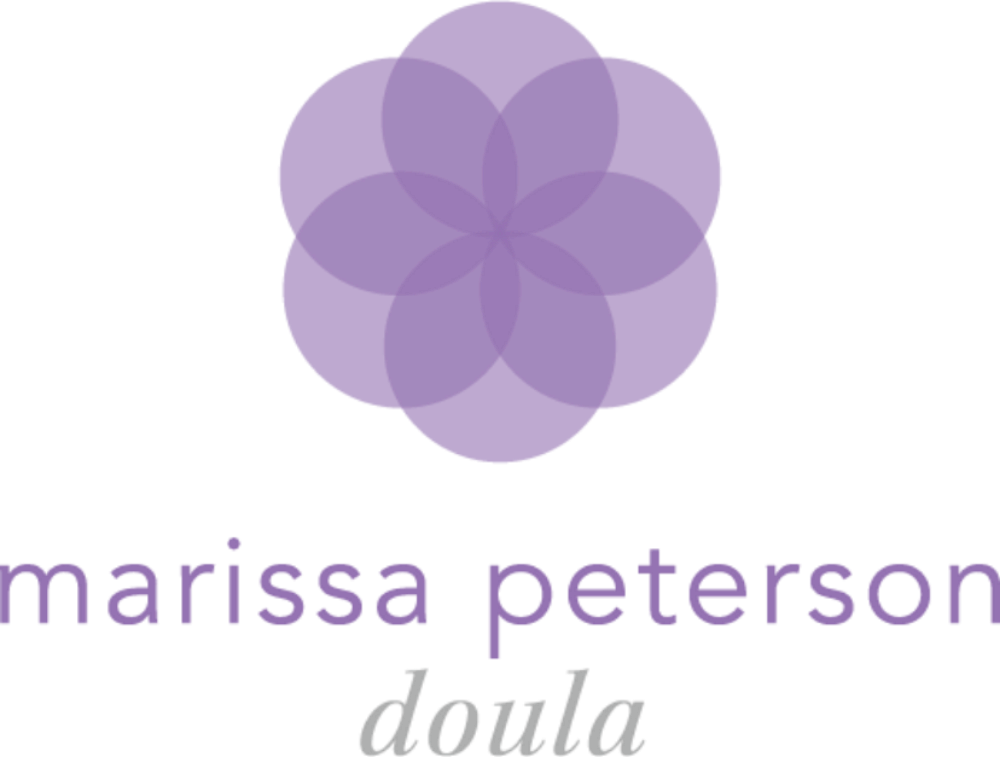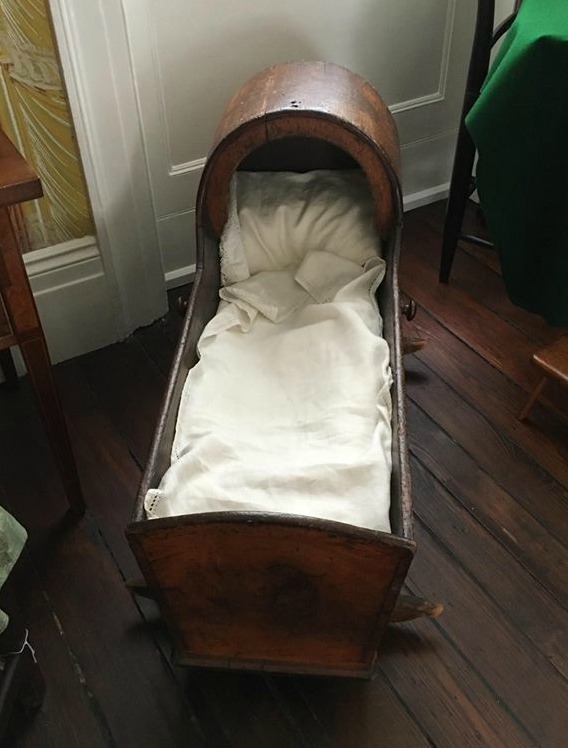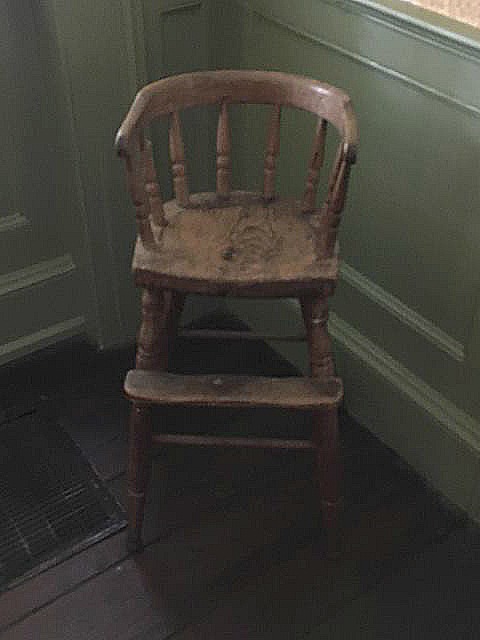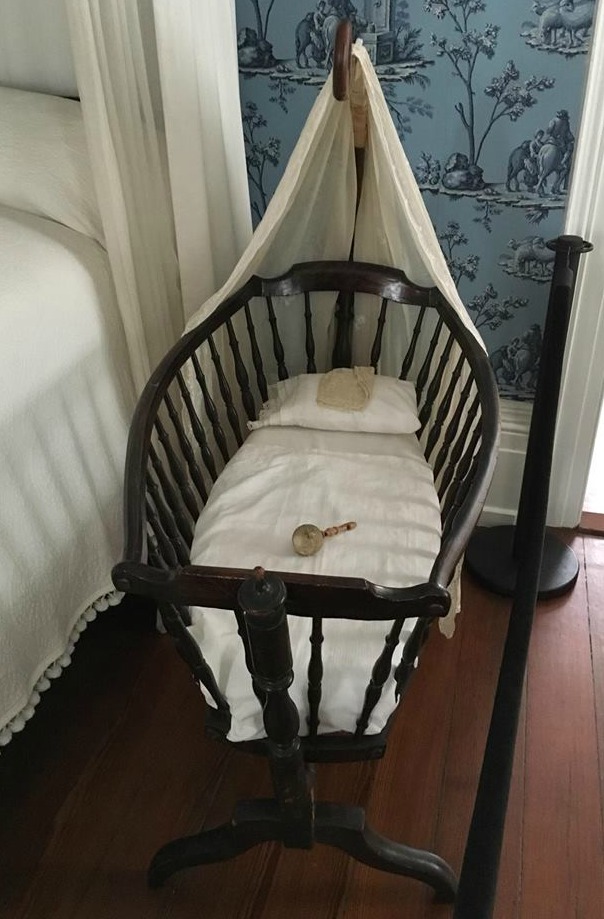Why Bleach?
Some people are curious why we use bleach during placenta encapsulation. To begin the explanation, we need to define a few words in terms of infection control:
Cleaners remove soil, dirt, dust, organic matter, and some germs. Sanitizers reduce the number of germs on a surface. Disinfectants destroy or inactivate germs and keep them from growing. Sterilizing removes all bacteria and other living microorganisms.
As far as placenta encapsulation, one's supplies and work space must be clean and disinfected. There is no need for sterilization.
In my practice, I start by cleaning my tools and work space with antibacterial dish soap. They are then rinsed thoroughly and dried. Next, a 10% bleach solution is prepared as a disinfecting bath. My tools and supplies are submerged and soak for ten minutes to be disinfected. They are then rinsed well and dried before use or storage. For surfaces, the solution is sprayed on, and kept wet for a full ten minutes before drying.
Bleach does not harm the environment, It naturally and quickly breaks down into water and hypochlorite salt. This is also the reason bleach sprays like described above must be made fresh daily. Bleach also does not contaminate ground water, as it does not survive sewage treatment. Bleach has also been studied and found not to cause cancer. Bleach also does not form dioxins when used in this way. Bleach does not cause sensitization.
So why can't I use essential oils when performing encapsulation? Well, essential oils are often added to homemade cleaning products to boost effectiveness. Essential oils do help clean, and can help sanitize, but they can not disinfect. Additionally, many people are sensitive and even allergic to essential oils. OSHA, the CDC, and Servsafe have a small list of approved cleaners, disinfectants, and sanitizers that are proven to work well; and essential oils are not on those lists. Finally, essential oils are much more expensive than the proven safe and effective products I use.
In summary, bleach is cheap (which keeps the cost of services low) and is proven to be an effective disinfection.
Sources:
Biologix Solutions 'Bloodborne Pathogens for Placenta Encapsulation Specialists' Course
OSHA 29 CFR 1910.1030
https://www.clorox.com/our-story/the-truth-about-bleach/
https://www.cdc.gov/niosh/topics/bbp/default.html
TENS
Elle TENS Unit
What is TENS?
TENS stands for transcutaneous electrical nerve stimulation. The device uses small electrical pulses to stimulate nerve endings in the skin and muscles. This feels like a tingling sensation on your skin. This helps relieve pain by interrupting pain signals to the brain (gate control theory), and helping your body produce endorphins.
Is TENS safe?
TENS is absolutely safe when used properly. In the study, there were "no adverse effects on mothers or newborns."
Is TENS effective?
In the study cited below, the conclusion states: "TENS is an effective non-pharmacological, non-invasive adjuvant pain relief modality for use in labor and delivery. TENS application reduced the duration of the first stage of labor and the amount of analgesic drug administered."
What are the benefits?
TENS is self administered and self controlled. It can be turned on and off, with the effects dissipating immediately when removed. TENS also allows you to keep moving and be in any position you like. You are also completely clear-headed, unlike some pharmacological pain control. TENS may also help you delay or avoid pain reliving medication.
What are the disadvantages?
TENS can not be used in water. It also can not be used if you have epilepsy or a pacemaker. The pads should not be placed over broken skin.
TENS is most effective when you begin using it early in labor. For this reason, I loan TENS units to my clients, so they can use it even before calling me if they chose.
For further reading:
http://www.ncbi.nlm.nih.gov/pubmed/9544709
https://www.ncbi.nlm.nih.gov/pmc/articles/PMC4297467/
http://www.birthbeyondbias.com/birthbeyondbias/2014/7/1/close-the-door-gate-control-theory
https://www.fitpregnancy.com/pregnancy/labor-delivery/tens-the-natural-labor-tool-no-one-talks-about
https://www.babycentre.co.uk/a542581/using-a-tens-machine-in-labour
http://www.honeybeemama.com/2013/07/tens-unit-for-labor-pain-relief.html
http://www.medscape.com/viewarticle/494120_10
My Doula Bag
It's always an interesting discussion in groups of doulas about our bags. Some believe they just need their heart, hands, and voice. Some add a change of clothes and a few snacks. Some carry essential oils and massage tools. Everyone is different! A common belief is the bigger the bag, the newer the doula.
I'm not sure if that's true, to be honest. I definitely feel that my heart, hands, and voice are my most important tools. But, I like my other tools and tricks. I may be an over packer and over prepared, but I never want to be at a birth and think "Oh! I wish I had some peppermint oil to help with her nausea..." or "My arms are killing me, I wish I had a massager to give more pressure."
My current doula bag is a Zuca bag. I love that it is compact, has lots of pockets, and handles curbs/stairs/parking garages smoothly. Plus, the top of the bag is made to be a seat!
Snacks- sometimes I'm at a birth for hours, sometimes for a day or more.
Honey straws, & hard fruit candies- a 'clear fluid' pick-me-up for clients, me, or a woozy partner.
Mints & gum- you have to keep your breath fresh around a laboring client, even if you're surviving on coffee :)
Toothbrush, mouthwash, & deodorant- nice to take a moment and freshen up. Such a simple thing can really be a pick me up at a long birth.
FULL change of clothes- sweat, vomit, and amniotic fluid happen. Sometimes you need more than just a shirt!
Jacket- folks in labor often want the room pretty cool, and I think hospitals are always cold!
Kneeling pad- this gets used by myself, client, and partners. Hard floors do a number on your knees.
Washcloths- if you didn't know, hospital ones are scratchy and sterile white. I bring thick, soft, colorful ones for my clients. It's one of those little things that can really make a big difference.
Rice socks- I make these out of soft flannel. These are warmed and used most often for back pain in labor.
Ice bag & cooling towel- Labor is hard work, and sweat happens!
Massage tools, lotion, & massage oil- fairly self-explanatory. Sometimes you need more pressure or more focused counter pressure than my hands can give. My favorites right now are an acrylic 'spider' and tennis balls.
New chapstick and hair ties- these are items clients need often, but forget to pack.
Rebozo- an incredible tool! Rebozos have an amazing history (future post!) and have been used for centuries to comfort pregnant people and those in labor.
TENS unit- TENS units are an interesting tool. To learn more, visit the tab under 'Services' above
Essential oils- Controversial, I know. I absolutely do NOT make a client use these. I don't even pull them out unless a specific situation arises where one may help
iPod and portable speakers- sometimes, families don't think they want music, then the room is suddenly too quiet! I keep an iPod loaded with a variety of instrumental music.
Tablet- client files, reference materials, communication with colleagues, and books for when mom is sleeping or taking some time alone with her partner.
Birth ball & cover- this actually only comes with me if we're not sure the birthplace will have one, and stays in my car until we know we need it.
Reference materials- these change often. I currently have the Labor Lab booklet, an essential oil 'cheat sheet', and medication reference cards from my training organization.
Thank you cards & business cards- I LOVE writing a little note to my client's providers, especially if it is my first time meeting them. The little things we do truly make an impact!
Placenta Pills Infect Baby!!! Probably Not...
Recently, a CDC report was released blaming placenta encapsulation for late-onset GBS infection in an approximately 16 day old baby. Yes, this is a scary thought, but there are some gaps in the research and processing of this placenta I want to break down.
So, we'll start with the issues in the report. First, GBS is a transient bacteria, which means it can come and go throughout a woman's life. So even though the mother was negative at 37 weeks, she could have been positive at birth. On the other hand, how many women are told they test positive, receive treatment, but are not actually colonized at birth?
Second, the capsules did test positive for the same bacteria baby was infected with. The mother's breastmilk, the most likely way the bacteria would have been transmitted, tested negative for the bacteria. The report also notes, "transmission from other colonized household members could not be ruled out".
Three of my colleagues raised excellent points and worded them much better than I can.
"You are also dealing with a severely immunocompromised infant who has just come off of a very rough course of antibiotics and was ill which makes that baby much more susceptible to any infection from any source." -Shannon Mitchell
"A logical conclusion is the initial infection wasn't eradicated and the secondary infection was basically a relapse. There was no gbs in the breast milk. I think that's an important part of the puzzle when assuming the placenta was the cause for reinfection. That said, the placenta doesn't seem to have been processed properly and probably shouldn't have been encapsulated to begin with given the immediate onset of the initial infection." -Deanna Norris, APPAC
"Late-onset GBS has generally been attributed to the presence of GBS in the infant's environment. Did they culture the doorknobs in the family's home? The client's nipples? How about burp rags or swaddling blankets? If the client had it on their hands, then they could have quite easily transferred it to the capsules when they were taking some out of the jar. To suggest that the capsules were the *source* of the organism seems like *quite* a stretch." -Wendy Gordon, Midwife
Now onto the problems with the processing of the placenta by 'Company A'. First, "the company does not ask about intra- or postpartum infections". This is HUGE! I absolutely ask this of my clients. Encapsulators never want you to consume infected tissue! In my practice, I will not encapsulate your placenta if you have chorioamnionitis, a confirmed GBS infection (not colonization- in that case your placenta would be prepared by steaming before encapsulation), or GBS infection of the newborn.
Also concerning is the fact that "according to Company A’s website, the placenta is cleaned, sliced, and dehydrated at 115°F–160°F". Any temperature below 160° is NOT safe for dehydration. Below 160° would keep the tissue in the 'danger zone' where bacteria grow rapidly, easily doubling in 20 minutes. When a placenta is dehydrating for 12+ hours, this is simply unsafe, unsanitary, and unacceptable. This is taught in any food handling course, so it makes me wonder if this encapsulator does not follow safe food handling standards.
In summary, in my practice and experience, GBS is only a concern when the mother or baby has a confirmed infection, or the placenta is prepared improperly.
References:
https://www.cdc.gov/mmwr/volumes/66/wr/mm6625a4.htm?s_cid=mm6625a4_e
http://placentaassociation.com/group-b-strep-placenta-encapsulation-safety/
https://www.fsis.usda.gov/wps/portal/fsis/topics/food-safety-education/get-answers/food-safety-fact-sheets/safe-food-handling/danger-zone-40-f-140-f/CT_Index
Where You Give Birth MATTERS!
This week, I was reading the new Consumer Reports on c-section rates. To put the jumble of numbers in perspective, the World Health Organization recommends that the c-section rate should be no higher than 15%. Our current national average is 33%.
According to Consumer Reports, as of March 2017, these are the cesarean rates in our area:
Memorial Hospital- "17% of first-time mothers with low-risk deliveries had a C-section"
St. Joseph's Candler - "40% of first-time mothers with low-risk deliveries had a C-section."
Also, from The LeapFrog Group, I was able to find out the episiotomy rates.
Memorial Hospital- 2.6%
St. Joseph's Candler- 15.3%.
But these two places are not the only choice for birth in Savannah!
The Midwife Group & Birth Center reports a hospital transfer rate of 9.59% with a 4% c-section rate for 2016.
Savannah Midwifery - "GeorgAnna's transport rate (of women in labor from home to the hospital) is 5.26%, or 5 clients in 6 years. Newborn transport rate is 3.94%, or 3 in 5 years (two to the hospital, one to their Pediatrician). One Savannah Midwifery client who transported from home to hospital had a non-emergent cesarean."
Naomi & Michael Voss after her cesarean birth!
Don't get me wrong, I am glad we have c-sections. They are truly life-saving when needed. The problem is that providers are becoming more likely to recommend this procedure- a major abdominal surgery- for reasons that are not evidence based. No surgery is without risks, so the decision for a cesarean birth should always come after a risk-benefit analysis and with the family's informed consent.
C-sections are birth, and birth is beautiful.
For more from Consumer Reports: http://www.consumerreports.org/c-section/your-biggest-c-section-risk-may-be-your-hospital/
For more on evidence-based care in labor & birth, please visit: https://evidencebasedbirth.com/
Standards & Scope
There is no one, single definition of the scope of a doula. Each doula training organization defines these for themselves. These are the standards, scope, and other information from the organizations I have trained and certified with. I am proud to be a part of these organizations, and honored to hold myself (and be held) to these standards.
New Beginnings
Statement of Professionalism
Scope and Standards
Code of Ethics
Stillbirthday
Principles of Service



















